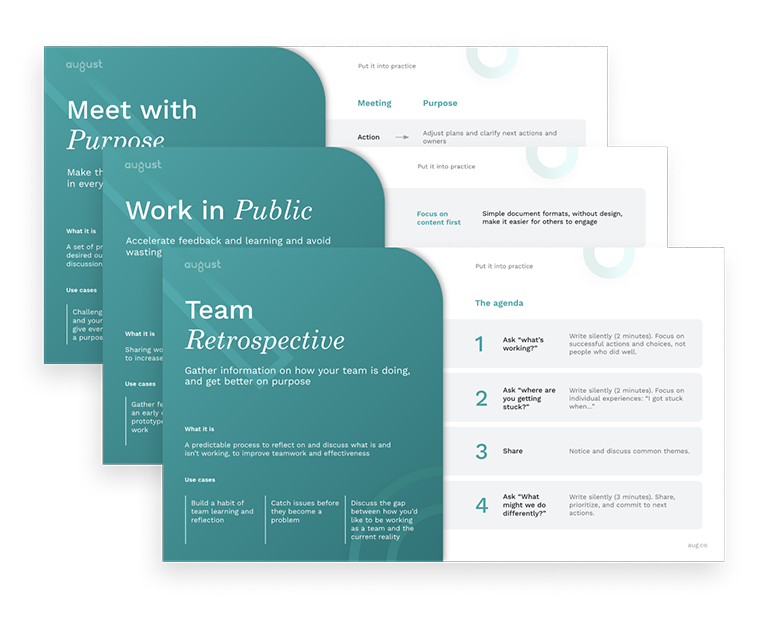Published January 31, 2024 | Updated May 20, 2024 | 4 minute read
At the end of every fiscal year, leaders in organizations big and small turn their focus toward strategic planning. It’s a critical moment in the organizational cycle, but the reality is that traditional strategic planning often requires a lot of effort for very little reward.
I’m sure I’m not the only one who’s been slammed out of nowhere with a Death by PowerPoint presentation of my employer’s strategic plan for the coming year. I remember how my eyes would glaze over as I clicked through page after page of graphics, jargon, acronyms, charts, and soaring prose about “great heights we would achieve together.” 😴
These impossible-to-read plans aren’t just trying to predict the future; they’re trying to control it. Nothing could be more futile in the business world – and yet it’s the only way some organizations know how to approach the fundamental uncertainty of today’s marketplace.
I’m not saying we should give up on strategic planning. It’s a critical exercise! But we need to learn how to do it in a way that actually empowers people to take tangible action, and has a built-in strategy for navigating the unknown.
August has a unique approach to strategic planning, which we call the Strategy Sprint. Over the years we’ve heard back from many clients that Strategy Sprints have helped them avoid the pitfalls of the more traditional process.
 There’s a crucial difference between Strategy & Planning.
There’s a crucial difference between Strategy & Planning.
The Strategy Sprint is a 3-day immersive retreat in which we help leaders envision what the organization will achieve in the coming year, and create a dynamic plan for how to get there.
We use this process to tackle nitty-gritty and easily-avoided questions about the day-to-day and month-to-month strategies we will deploy to keep the organization continually moving towards its goals.
This differs from more traditional strategic planning processes, which tend to emphasize planning over strategy. Plans can change. They should change! But without a clear strategy for how to navigate those changes, plans become brittle and fragile, unable to adapt to changing circumstances.
If we’ve learned anything in recent years, it’s that circumstances will always change. Which is why we need a more modern approach to strategic planning that assumes change as a given, and equips organizations to adapt and respond.
August’s Strategic Planning Process focuses on methods, rather than outcomes.
The Strategy Sprint reframes the traditional strategic planning process to focus not just on where we want to go, but how we will get there.
Yes, we articulate our goals and aspirations for the year (the what). But that’s just part of Day 1 of this three-day process. We spend the bulk of the time focusing on the underlying purpose (the why), the processes and tools we’ll use (the how), and the people who will take point on specific elements of the plan (the who).
We also set a cadence (the when) for evaluation and recalibration of the plan based on new information that emerges. This gives us a clear rhythm for responding to the unknown as it becomes known, rather than trying to predict the future in advance.
August’s Strategy Sprint will modernize your approach to strategic planning.
Our Strategy Sprint process can help you create an effective and empowering strategic plan designed to navigate an uncertain future and achieve big results.
To learn more, check out our free Strategy Sprint Playbook. And please reach out if you’d like to explore this approach for your next team retreat!


.jpg)






